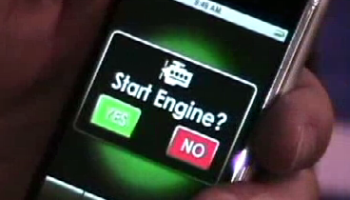The advancement in technology has made wonders for the automotive world. Today's cars can diagnose themselves, they interact with the driver, they record every possible error for quick fixing and some of them even drive themselves.
But, as is the case with every miracle, it all comes at a price. Like trying to abide by the law (and paraphrase it) that says that for every action there is a reaction of equal force and opposite direction, the very smart cars of today are more vulnerable to attacks then ever.
This is what a team of scientists from Switzerland found out after looking into 10 car models from eight manufacturers. According to them, it is now in fact easier (if you have the required knowledge) to steal a car then back in the good old days.
After creating two scenarios, the team of scientists was able to get into each of the ten cars, without using a key or forcing the doors, and drive away. Apparently, they did it cheap too, as the whole hardware required to get away with it costs only $50 (for wired attack) and between $100 and $1,000 (for wireless hacking).
Long story short, in the first scenario, the team was able to start a car remotely, using an antenna to communicate with the car's key. In the second one, the approach was a bit more daring, with the team starting the car of the intended target while only eight meters away from the owner's key fob.
Of course, the exact details of the research were not provided, due to obvious reasons. We have a feeling, though, that those who know how to do it are already doing it.
But, as is the case with every miracle, it all comes at a price. Like trying to abide by the law (and paraphrase it) that says that for every action there is a reaction of equal force and opposite direction, the very smart cars of today are more vulnerable to attacks then ever.
This is what a team of scientists from Switzerland found out after looking into 10 car models from eight manufacturers. According to them, it is now in fact easier (if you have the required knowledge) to steal a car then back in the good old days.
After creating two scenarios, the team of scientists was able to get into each of the ten cars, without using a key or forcing the doors, and drive away. Apparently, they did it cheap too, as the whole hardware required to get away with it costs only $50 (for wired attack) and between $100 and $1,000 (for wireless hacking).
Long story short, in the first scenario, the team was able to start a car remotely, using an antenna to communicate with the car's key. In the second one, the approach was a bit more daring, with the team starting the car of the intended target while only eight meters away from the owner's key fob.
Of course, the exact details of the research were not provided, due to obvious reasons. We have a feeling, though, that those who know how to do it are already doing it.

